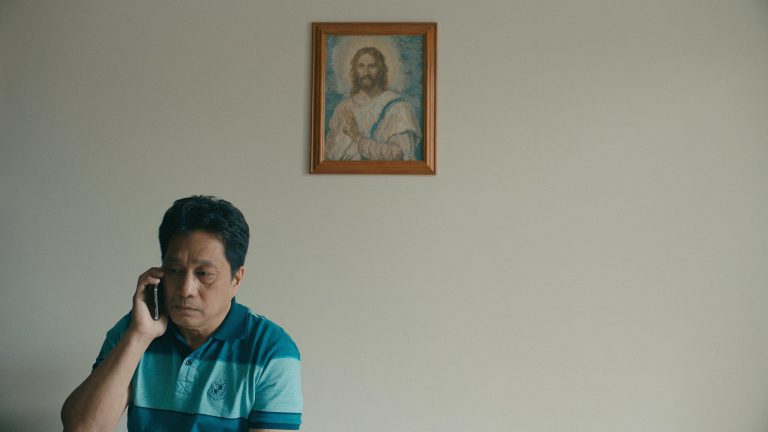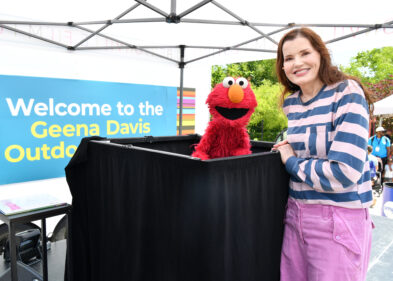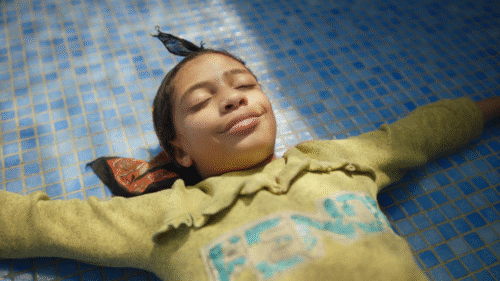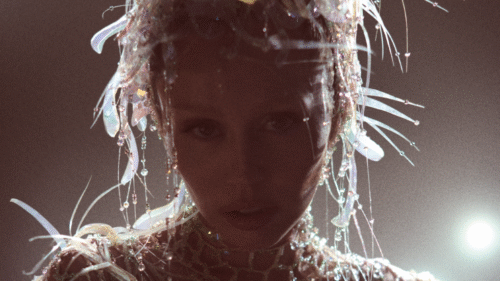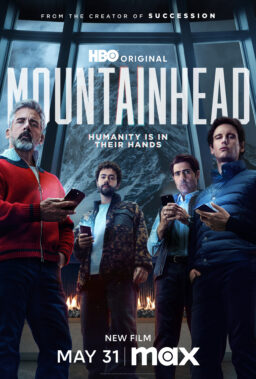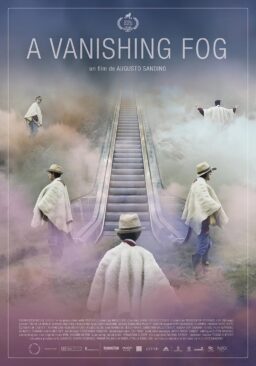Martin Edralin’s directorial debut “Islands” is sure to be one of the more gradual, more restrained films playing the virtual festival this year, and such tenderness will only help it stand out even more. This story of isolation and aging—of having to take care of your ailing parents while not knowing how to take care of yourself—is a stunning feat of lived-in filmmaking, with shot compositions and confident pacing as organized as furniture in a living room. Filled with the hallmarks of a strong director, it is as emotionally immersive as it is unassuming.
Set in Ontario, “Islands” depicts a Filipino man on the brink of his 50th birthday living with his parents as they start to slow down. Joshua (Rogelio Balagtas) is shy and religious, and has never had a girlfriend; it’s a different life path from his brother Paolo, who later shows up at the home with his smiling wife and kids. Living in this social isolation, Joshua goes with his parents to their group dance class, and struggles to allow himself to make friends at his job as a janitor at nearby university. Joshua’s deepest relationship is with God, his prayers at night are like finite monologues of longing. “I don’t want to be alone,” he pleads, while having a degree of shyness that can easily overwhelm him.
The quiet household is shaken up when, early into the story, the mother dies. Now it’s up to the son to take care of his father Reynaldo (Esteban Comilang), despite not knowing the family recipes, or how to physically direct his father. It leads to long moments of caretaking; more takeout, more isolation. In the script’s tender fashion, a lifeline enters the picture, as Joshua’s cousin Marisol (Sheila Lotuaco) returns from caregiving in Kuwait (a terrible experience, she reveals, in a touching scene) to help out. Marisol brings a certain levity to the story, but is by no means a simple solution to the problem given the father’s conditions, and the son’s immaturity.
“Islands” prevails at getting you to live in this situation, in this home, to understand the layout of the living room and the dining room and the kitchen, while also noting the rhythms to caregiving. When the son helps his father get into the shower, one small movement by the next, Edralin’s camera sits with it patiently, giving the challenge all of the time it needs, investing us in the feat of getting one foot after another into the shower. In other instances, it’s not the caregiving so much as the time sitting, watching the father’s physical deterioration parallel his son’s stagnation. But with mom gone, they start to share silences and reclusiveness. The excellent performances are of similar restraint, their lack of external emotions causing you to recognize the different shades of longing on their face, creating a rich atmospheric effect (the father’s glances can be especially telling). It becomes clear as “Islands” moves from one sequence to the next that the amount of empathy he has for these characters matches that of their significant loneliness.
Underneath this more quiet exterior, there is a playful side to Edralin’s direction that peeks out in exhilarating ways. It has a sense of humor, as when Joshua’s father is shown in his Elvis impersonator costume, hinting at a rock star that has since become muted. And then there’s a triumphant scene right before Marisol shows up, when things appear at their most dire. Joshua has fully resigned to the circle of ordering and reheating takeout, and when he places some food in a microwave, the camera watches it heat up for a full minute. Suddenly, the samba music kicks in from the parents’ dance classes, and it’s a moment to exhale, an intermission, a release that gently overlaps the different slices of life within “Islands.” This scene, like many others, shows the depth of Edralin’s confidence and also his compassion, two facets that are sure to make him a filmmaker we can trust in the future with our most uncomfortable but honest experiences.

Premiering in the festival’s narrative spotlight program, Mari Walker’s heartfelt and compelling directorial debut “See You Then” tells of a reunion of two people who used to be lovers in college, and have since gone on to live different lives. Naomi (Lynn Chen) has lost some of her artistic and activist flair, and is now a mother to two kids, and a wife in a marriage that sounds more convenient than it is romantic. Kris (Pooya Mohseni) used to date Naomi, until suddenly ditching her years ago. Kris has transitioned in the past year, and learned in that timeframe what it’s like to be a woman. “We’ve got a lot to talk about,” their conversation starts, and it becomes quickly apparent that there’s always more to their initially amiable chatter.
Written with balanced conciseness and spaciousness by Walker and Kristen Uno, “See You Then” is a dialogue-driven character study that makes you want to know more about Kris and Naomi, and doesn’t get caught up in exposition that would make more clear the story’s intentions of touching on the past while reflecting the future; one of the best things about the script is that its discussion topics pop up naturally, and fill in emotional and historical space without losing the pacing. Mohseni and Chen are an excellent on-screen pair throughout with their crisply edited banter, sometimes at odds with each other given the past hurt that Naomi remembers far more vividly than Kris. Their discussions touch on topics that are fascinating on their own, like Naomi’s practical life choices, or Kris’ experience from a year ago in transitioning, and Kris’ desire to become a mother. “See You Then” often ambles into spiky, fascinating territory whenever Naomi calls out Kris’ previous actions back in the college days, as part of an identity that Kris has moved on from in only certain ways.
You enjoy being in the company of Kris and Naomi so much that the inevitable climax—a mystery for a long time as to what that may be—is nearly dreaded. How could this movie pull off a meaningful but inevitable clash, given all the tenderness from before? But it does so beautifully, tying everything together with details that have been in between the pauses of their conversations. And because of Naomi’s artistry background, it even unfolds with a visual backdrop that naturally gives a lot of color, the camera spinning around them. It’s a stylized departure from the previously restrained style, and it helps Walker’s selective but deliberate flourishes further leave their collective mark.
Like other great walk-and-talk movies, “See You Then” is told with a deceptive ease—it makes a discussion between two characters, with a few locations and supporting characters (mostly men who hit on Kris) look “easy,” despite the ambition. The film prevails with honoring the gradualness of such an evolving social interaction, so much that their literal pacing reads as its only unnatural flourish—they take several minutes to walk about two blocks. But that rhythm, of one step at a time, nearly takes on a hypnotic effect. It forces the viewer to slow down and drink it all in, and focus on what Kris and Naomi are not saying to each other.

Edson Jean’s “Ludi” follows a tough day in the hardworking life of Ludi (Shein Mompremier), a Haitian immigrant who works in hospice care to pay rent for her small Miami bedroom and to send money to her family in Haiti. She communicates with her family via a cassette tape that they mail to each other, listening to messages and recording over it, a clever narrative device to show her voiceover throughout, and to accompany feelings of how alone Ludi can be in her work. The events catch her at the end of a long week, where she is trying to add on more hours at her job—Jean and Joshua Jean-Baptiste’s script initially captures a modern hustle, of someone struggling to get more work. She tries to beg her superiors at the care facility she works at, and then asks a sly co-worker. For someone who has an established sense of right and wrong, she tries to look past that by taking on more hours than legally provided. The older people in this story, including a shuttle bus driver who thinks she simply needs a man, mention the idea of her taking a vacation as if it were a cruel joke.
That is a compelling narrative in its honesty, but the momentum is dropped when she finds some work taking care of an old man named George, who clearly does not want her help. Ludi pushes through, wanting to honor the job she’s been assigned, and to help someone who needs physical help and with cooking. These scenes highlight her immense sense of helping others, and dedication to hard work, but also flatten “Ludi” and its initial promise of a revealing, nervous energy.
I deeply appreciate what “Ludi” is ultimately urging its viewers; it functions as a type of parable about not taking on more work than one can handle, as many of Ludi’s actions in the day are of her doing things others will benefit far more than her. But while Mompremier’s fortitude is a strong emotional core for this story, the filmmaking and supporting performances are too rough around the edges, creating more of a broad idea of environment that Ludi is trying to navigate daily. It does not have enough of a signature, even though it makes you empathize with Ludi from the beginning, instilling a hope that she will get time to take care of herself.

